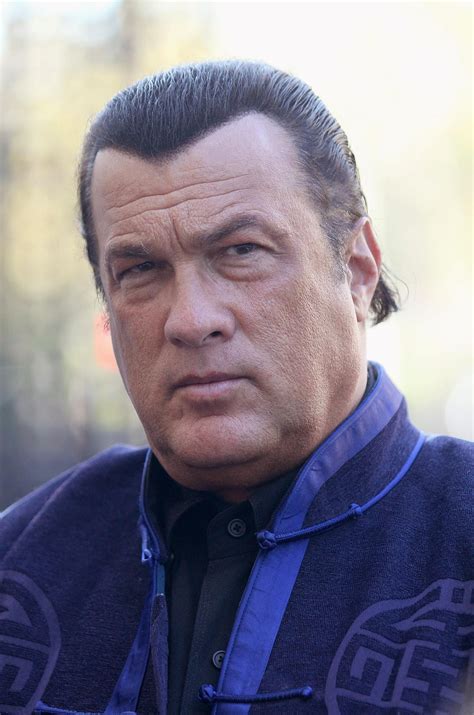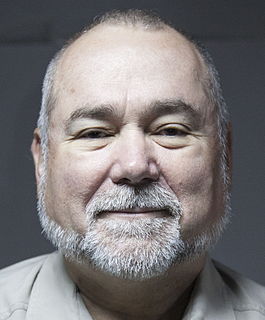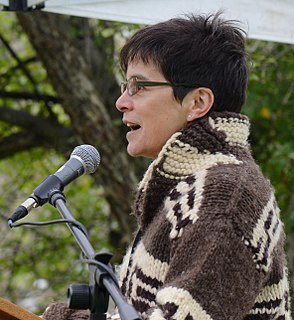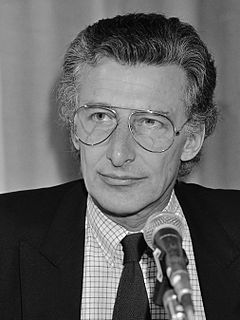A Quote by Jon Meacham
The past always seems somehow more golden, more serious, than the present. We tend to forget the partisanship of yesteryear, preferring to re-imagine our history as a sure and steady march toward greatness.
Related Quotes
As our lives speed up more and more, so do our children's. We forget and thus they forget that there is nothing more important than the present moment. We forget and thus they forget to relax, to find spiritual solitude, to let go of the past, to quiet ambition, to fully enjoy the eating of a strawberry, the scent of a rose, the touch of a hand on a cheek...
Originally the structure was . . . a modern narrator who would appear intermittently and talk about his memories of his grandmother, which would then be juxtaposed against scenes from the past. But the stories from the past were always more interesting that the things in the present. I find this almost endemic to modern plays that veer between past and present. . . . So as we've gone on developing GOLDEN CHILD, the scenes from the past have become more dominant, and all that remains of the present are these two little bookends that frame the action.
Tolkien, who created this marvellous vehicle, doesn't go anywhere in it. He just sits where he is. What I mean by that is that he always seems to be looking backwards, to a greater and more golden past; and what's more he doesn't allow girls or women any important part in the story at all. Life is bigger and more interesting than The Lord of the Rings thinks it is.
It is only a short step from exaggerating what we can find in the world to exaggerating our power to remake the world. Expecting more novelty than there is, more greatness than there is, and more strangeness than there is, we imagine ourselves masters of a plastic universe. But a world we can shape to our will is a shapeless world.
Our achievements speak for themselves. What we have to keep track of are our failures, discouragements and doubts. We tend to forget the past difficulties, the many false starts, and the painful groping. We see our past achievements as the end results of a clean forward thrust, and our present difficulties as signs of decline and decay.
I feel history is more of a story than a lesson. I know this idea of presentism: this idea of constantly evoking the past to justify the present moment. A lot of people will tell you, "history is how we got here." And learning from the lessons of history. But that's imperfect. If you learn from history you can do things for all the wrong reasons.
I am a patriot. I have always sought to serve my country, in theory a Republic. Learning that secrecy was evil rather than good was my first step. From there it was a steady march toward open-source everything. Now I see all the evil that secrecy enables in a corrupt Congress, a corrupt Executive, a corrupt economy, and a corrupt society. I see that the greatest service I or any other person can render to the Republic is to march firmly, non-violently, toward open-source everything.
Besides, whoever keeps the future in front of him and the past at his back is doing something else that's hard to imagine. For the image implies that events somehow already exist in the future, reach the present at a determined moment, and finally come to rest in the past. But nothing exists in the future; it is empty; one might die at any minute. Therefore such a person has his face toward the void, whereas it is the past behind him that is visible, stored in the memory.
If any one faculty of our nature may be called more wonderful than the rest, I do think it is memory. There seems something more speakingly incomprehensible in the powers, the failures, the inequalities of memory, than in any other of our intelligences. The memory is sometimes so retentive, so serviceable, so obedient; at others, so bewildered and so weak; and at others again, so tyrannic, so beyond control! We are, to be sure, a miracle every way; but our powers of recollecting and of forgetting do seem peculiarly past finding out.




































